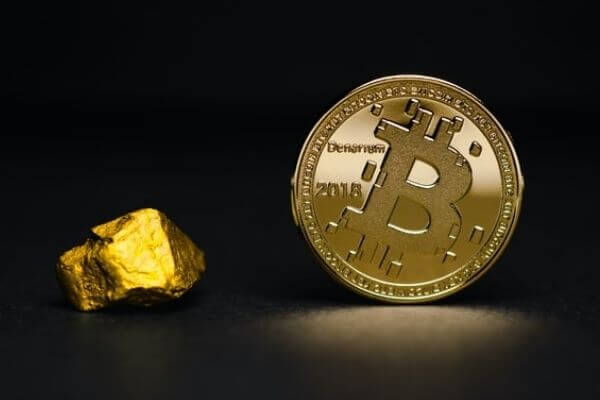
“No”, answers a Shenzhen court in Gao v. Shenzhen Yunsilu Innovation Development Fund Enterprise (2018), ruling to set aside an arbitral award on the ground of public policy, given that cryptocurrency exchanges are banned in China.
On 26 Apr. 2020, in a judicial review of arbitration case, Shenzhen Intermediate People’s Court ordered that the arbitral award should be set aside on the ground of public policy, given that the exchange between Bitcoin and the legal tender Renminbi (CNY) at the price published by OKCoin (okcoin.com.) is against the public interest of China. (See the case of Gao Zheyu v. Shenzhen Yunsilu Innovation Development Fund Enterprise (L.P.) and Li Bin, (2018) Yue 03 Min Te No. 719)
I. Case background
Li Bin (“Li”) entrusted Gao Zheyu (“Gao”) to conduct crypto-currency wealth management. In respect of the financial services, Li and Gao agreed that: (1) Li should pay the financial service commission of CNY 300,000 to Gao; (2) Gao should return the cryptocurrencies to Li, namely 20.13 Bitcoins (“BTC”), 50 Bitcoin Cash (“BCH”), and 12.66 Bitcoin Diamond (“BCD”).
In addition to the transaction between Li and Gao, Gao had also engaged in a transaction with another investment fund enterprise named Shenzhen Yunsilu Innovation Development Fund Enterprise (“Fund”) whereby Gao purchased the equity of another company the Fund owned and should pay the equity transfer price to the Fund.
Li agreed to pay for a part of the equity transfer price to set off the wealth management commission he owned to Gao, letting Gao pay the rest of the price to the Fund on his own.
For this purpose, Li, Gao and the Fund have entered into an equity transfer agreement for the aforesaid arrangement and agreed to settle future disputes through arbitration.
However, after Li paid the equity transfer price, Gao did not return the above-mentioned cryptocurrencies to Li, nor did Gao pay the outstanding equity transfer price to the Fund on his own.
Therefore, Li and the Fund then filed an arbitration application with Shenzhen Arbitration Commission, where Li claimed that USD 493,158.40 (equivalent to the value of above-mentioned cryptocurrencies) and interests be paid by Gao to Li.
The arbitration tribunal found in favor of Li on most of his claims. In the award, by taking reference to the price disclosed on the website, okcoin.com, the arbitral tribunal estimated the value of above-mentioned cryptocurrencies should be USD 401,780, and GAO should pay to Li relevant amount in CNY after the settlement is made in CNY at the exchange rate between USD and CNY on the date that the award is rendered.
Afterwards, Gao filed an application for judicial review of the arbitral award to Shenzhen Intermediate People’s Court (“the Court”), requesting the Court to set aside this arbitration award.
The Court held that the arbitral award on Bitcoin was against the public interest and thus set aside the arbitral award.
II. Court views
The Court held that:
“Circular of the People’s Bank of China, the Ministry of Industry and Information Technology, the China Banking Regulatory Commission, the China Securities Regulatory Commission and the China Insurance Regulatory Commission on Preventing Risks from Bitcoin” (“2013 Document”, 中國(guó)人民銀行工業(yè)和信息化部中國(guó)銀行業(yè)監(jiān)督管理委員會(huì)中國(guó)證券監(jiān)督管理委員會(huì)中國(guó)保險(xiǎn)監(jiān)督管理委員會(huì)關(guān)于防范比特幣風(fēng)險(xiǎn)的通知) clearly stipulates that Bitcoin does not have the same legal status as a legal tender, and cannot and shall not be circulated in the market as a currency.
In 2017, the People’s Bank of China and six other authorities jointly issued the “Announcement on Preventing Risks relating to Fundraising through Token Offerings” (“2017 Document”, 關(guān)于防范代幣發(fā)行融資風(fēng)險(xiǎn)的公告) to reiterate the above provisions. Meanwhile, in terms of financial risk prevention, it further proposes that any so-called token financing and trading platform shall not engage in exchange business between legal tender with tokens or between “virtual currencies”, shall not trade tokens or “virtual currencies” for itself or as a central counterparty; and shall not set prices for tokens or “virtual currencies”, or provide information and other related services”.
The aforementioned documents essentially prohibit the redemption, trading and circulation of Bitcoin, as well as speculation in Bitcoin and other activities that may amount to engaging in illegal financial activities, disturbing the financial order or affecting financial stability.
The arbitral tribunal ruled that Gao should compensate Li for the US dollars equivalent to the value of the Bitcoin, then convert the US dollars into CNY, which had substantially amounted to redemption and trading between Bitcoin and legal tender in a disguised form, and had contravened the spirit of the above documents and violated the public interest. The arbitral award should therefore be set aside.
III. Our comments
Does the Court’s ruling to set aside this arbitral award mean that China’s courts do not recognize the legality of cryptocurrencies such as Bitcoin?
In fact, the 2013 Document cited by the Court clearly indicates that "Bitcoin shall be a specific virtual commodity, have no legal status equal to that of legal tender, and cannot and shall not be circulated and used as currency in the market".
In other words, if Bitcoin is deemed as a virtual commodity, the court can protect the ownership of that commodity. However, in both the 2013 and 2017 Documents, trade and exchange of cryptocurrencies with CNY is strictly prohibited.
See an earlier post, for a detailed discussion on Bitcoin as a virtual commodity,
Therefore, if the arbitral tribunal treated the bitcoin as a virtual commodity and ruled that Gao return the bitcoins to Li, no issue would arise.
However, by converting bitcoins into US dollars and further into CNY at the prices published on okcoin.com, the arbitral tribunal has in effect confirmed the conversion of bitcoins into CNY and foreign currencies and endorsed the prices of such conversion disclosed on the website, okcoin.com. In the view of the Court, such award is in favor of the prohibited activities stipulated in the 2013 Document and the 2017 Document and thus was against the public interest of China.
Let’s recap on the 2013 Document and the 2017 document. The 2013 Document refuses to regard cryptocurrencies, among others, as money and financial products and prevented them from being used for money laundering. The 2017 Document mainly prohibits the use of cryptocurrencies as financial products.
We believe that if it's just a bilateral transaction between two parties, and they negotiate a price, it could be considered as a normal commodity transaction, rather than a currency exchange.
If you buy crypto-currency after trading on a digital currency exchange, or trade at its publicized price, or if you buy crypto-currency after raising money through tokens, it will be considered a currency exchange or a financial transaction.
Such view was confirmed by Shanghai First Intermediate People’s Court in a case involving the return of bitcoin. In Li et. al. v. Yan et. al. (2019)., the defendant could not return the Bitcoin, and the plaintiff proposed to determine the amount of compensation by the price disclosed on Coinmarketcap.com, but the court did not uphold it. Therefore, the plaintiff and the defendant negotiated another price standard, according to which the court determined the amount of compensation.
Contributors: Guodong Du 杜國(guó)棟 , Liu Qiang 劉強(qiáng)









